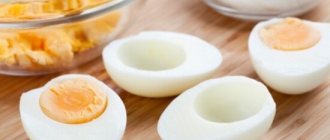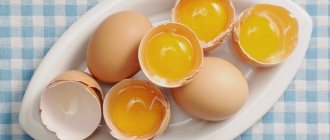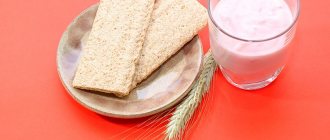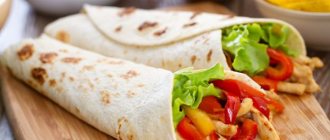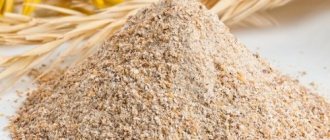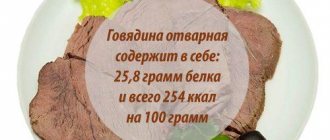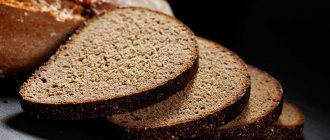Just a couple of decades ago, many doctors and nutritionists did not recommend eating eggs. They classified this product as harmful to the body. The maximum allowed quantity was 1 piece. in Week. This was due to the fact that the cholesterol found in the yolk was considered harmful. Now the situation has changed significantly. Scientists have spent a lot of time trying to find out how this product affects the human body, what its beneficial properties are, and also, how many calories are in an egg.
After all, as it turned out, cholesterol, which was found in the yolk of eggs, is neutralized by lethicin. Therefore, this product began to be actively used in various diets. In addition, there are quite a lot of options for preparing them (hard-boiled, soft-boiled, poached, frying), thanks to which you can diversify your menu. Diversity is also ensured through the use of chicken, quail, and goose eggs.
Compound
On average, one raw egg weighs about 45 grams and its calorie content is 75 kcal.
In this case, the protein has the following composition:
- water – 87%;
- proteins – 11%;
- carbohydrates – 1%;
- minerals – 1%.
Video
Yolk composition:
- water – 50%;
- fats – 31%;
- proteins – 17%;
- minerals – 2%.
It is also worth noting that they contain a high content of phosphorus, calcium, sodium, potassium, iron, zinc and selenium.
In addition, they are rich in vitamins:
- A;
- AT 3;
- AT 4;
- AT 6;
- AT 12;
- D;
- E;
- RR;
- TO;
- biotin;
- folic acid.
Video
Calorie content
For those who try to watch their diet, counting calories is normal. The energy value of chicken eggs is 158 kcal. But it is worth understanding that the number of calories per 100 g largely depends on the form in which they are consumed. In particular, the calorie content of 1 raw egg will be less than that of a fried egg. The main data is summarized in the table below.
| Calorie content | |
| View | Number of kcal |
| One medium-sized raw chicken egg | 70 |
| One boiled chicken egg | 50-70 |
| Soft-boiled | 70 |
| Hard-boiled | 50 |
| Fried in vegetable oil | 125 |
| Quail | 16-17 |
| Ostrich | 118 per 100 grams |
In addition, it is worth considering the category.
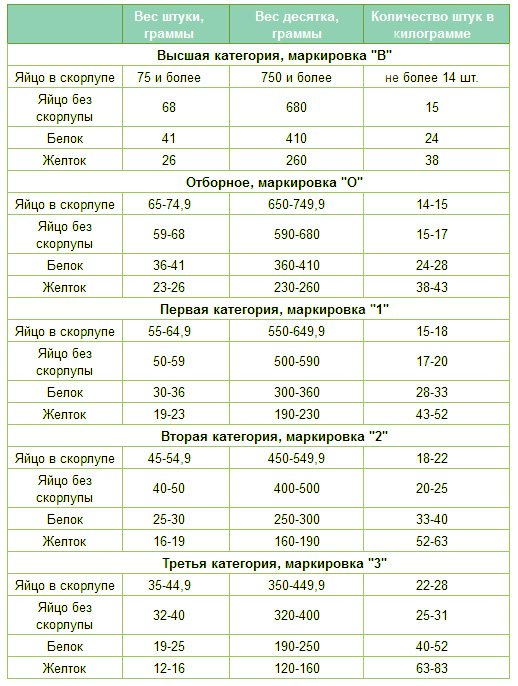
Raw
Chicken eggs in this form are characterized by an almost complete absence of carbohydrates, so the energy value is based on proteins and fats. The first component is contained mostly in the protein, the second in the yolk. In this case, the ratio of BJU per 100 g is 13:11.4:0.1.
Please note: The total calorie content is estimated by nutritionists at 157 kcal. Moreover, if it is large, then it is approximately equal to 80 kcal, medium - 70 kcal, very large - 90 kcal.
Boiled
The product in this form is recommended for consumption by many nutritionists. Thanks to it, a person retains a feeling of fullness for a long time and there is no desire to snack. One boiled product contains a large amount of proteins, which will charge you with energy for 4-5 hours. Not many people know how many calories are in one boiled egg. It all depends on how long the cooking took place. In order to get a soft-boiled dish, it is recommended to cook it for 2 minutes from the moment the water boils, poached - 4 minutes, hard-boiled - 7 minutes.
Video
It is worth noting that the most useful method of preparing it differs from the usual cooking. The product must be placed in boiling water. After 1.5 minutes, the fire is turned off and allowed to “cook” after a certain amount of time. With this method, the white will be solid, but the yolk will remain liquid.
Practical advice: Nutritionists do not recommend overcooking. In this case, the food will taste like rubber. For easy cleaning, it is recommended to remember the following tip: to ensure that the shells are easily removed, you need to place them in chilled water as soon as the cooking time is up.
Fried
In this form, the product has a high calorie content. If frying took place without adding oil, then the figure is 100 kcal. When adding vegetable oil, the calorie content increases to 125 kcal.
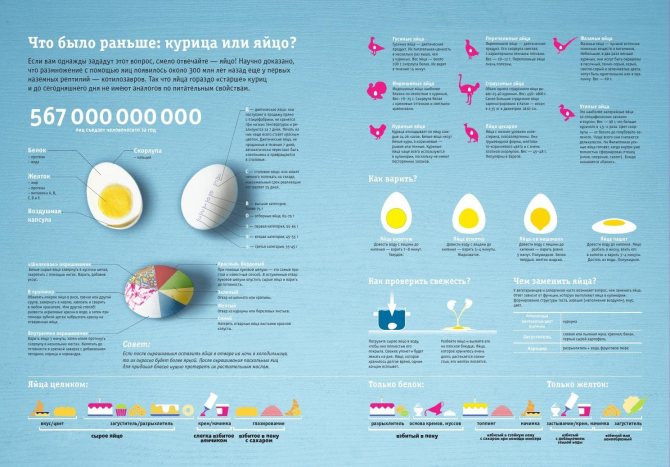
If we consider the most common and popular dishes, we can highlight the following data:
- scrambled eggs from two eggs - 250 kilocalories;
- fried eggs - 245 kcal per 100 g of dish;
- two-egg omelette – 200 kilocalories;
- omelette of two proteins – 128 kcal.
Egg powder
This product is also called dry melange. It is actively used in the food industry. 1 kg of such powder replaces about 9 dozen. At the same time, the energy value of 100 g is equal to 542 kilocalories. BJU is 46:37.3:4.5.
White and yolk separately
Yolks are significantly higher in calories than the whites of chicken eggs. If you need to consume fewer calories, then you should separate the product and use only proteins. If you take a medium-sized egg, the protein in it will have about 20 kilocalories. At the same time, it is worth paying attention to the fact that 97% of it is absorbed.
Please note: Protein contains a large number of elements beneficial to the human body, in particular methionine. Thanks to it, the synthesis of adrenaline, cysteine, which is responsible for eliminating toxins, and also creatine occurs. A deficiency of this element can lead to various disorders, including general damage to the central nervous system.
The yolk of one egg has a calorie content of 50 kcal. It contains a whole complex of fatty acids and dietary fiber, which have a beneficial effect on the body. The presence of lecithin helps improve brain activity, memory, increases human performance, prevents the development of diseases such as sclerosis, has a positive effect on the liver and helps to recover faster after physical activity.
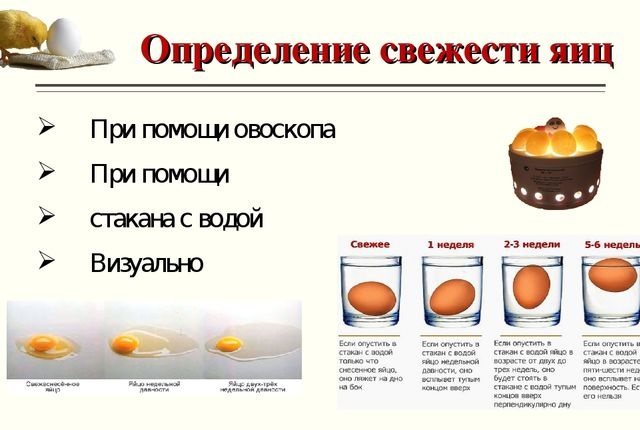
Calorie table for eggs and dishes made from chicken and quail eggs per 100 grams
For those losing weight and people controlling their weight, it is important to create a program in such a way as to ensure the effect of losing weight by reducing the calorie content of food, without sacrificing the quality and content of vitamins and elements in it.
Today it is not difficult to calculate the calorie content of a dish on your own, since there are many tables with information about the calorie content of egg dishes and online calculators.
The final calorie content of a dish largely depends on the proportions of the main ingredients and their nutritional characteristics.
Let's present a table of the calorie content of eggs and the most popular dishes using them per 100 g:
| Eggs, kcal | |
| Raw chicken egg | 157 |
| Raw quail egg | 167 kcal |
| Boiled chicken egg | may differ slightly from the calorie content of raw |
| Boiled quail egg | |
| Egg dishes, kcal | |
| Scrambled eggs with butter | 240 |
| Scrambled eggs without butter | 174,6 |
| Classic omelette | 184 |
| Steamed omelette without other ingredients | 136 |
| Egg white omelette without vegetable oil | 55,7 |
| Omelet with tomatoes and milk | 162 |
| Omelet with cheese | 343 |
| Omelet with milk, cheese, vegetable oil | 345 |
| Omelette with mushrooms and chicken | 211 |
| Omelette with meat ingredients | 350 |
The daily norm for a healthy person is considered to be consuming 1,200–1,600 kcal per day. This norm depends on the lifestyle, nature of work, gender, and individual characteristics of a person.
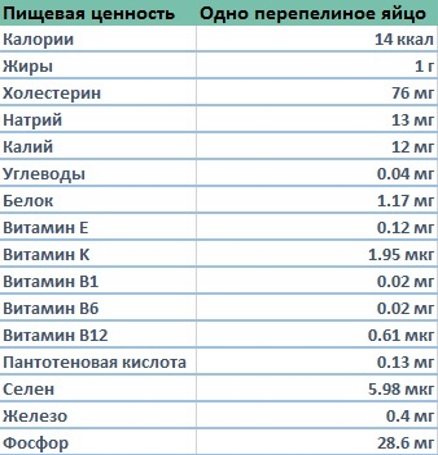
Having information about the approximate calorie content of dishes or having calculated this value independently, everyone has the opportunity to adjust their daily diet.
Quail
Having figured out how many kcal are in 1 chicken egg, you can move on to other types of this product. Quail eggs are also in demand because they contain a large amount of vitamins, microelements and amino acids. At the same time, doctors do not indicate contraindications to their use. On the contrary, this product is recommended for gastrointestinal diseases. Its beneficial properties also include normalizing blood pressure. The product has an energy value of 168 kilocalories.
Video
Eggs for weight loss
Some diets use eggs for weight loss. First of all, we are talking about low-carb diets. Such diets are based on modern ideas about metabolism. By eliminating carbohydrates, we launch fat breakdown processes. As a result, ketone bodies appear in the blood, which help suppress appetite. Eggs can also be used in low-calorie diets. The calorie content of hard-boiled and soft-boiled eggs allows us to consider these products dietary. Their energy value per serving is low. And the feeling of fullness comes for a long time. Eggs are a source of valuable vitamins and microelements. Moreover, these substances are absorbed from eggs very well. A chicken egg per 100 grams contains: phosphorus - 192 milligrams, potassium - 140 milligrams, sodium - 134 milligrams, calcium - 55 milligrams, magnesium - 12 milligrams, iron - 2.5 milligrams, copper - 83 micrograms, cobalt - 10 micrograms. All these substances are especially needed to maintain health for those who are constantly struggling with excess weight through various unbalanced diets. However, overuse of eggs can lead to undesirable consequences. This is especially true for those whose cholesterol levels, according to blood biochemistry, exceed normal values. Therefore, eggs for weight loss should be used only with good blood biochemistry tests.
Beneficial features
The health benefits of eggs are recognized all over the world. Their use has a beneficial effect on men's and women's health.
The main useful properties include:
- Availability of easily digestible proteins. In this case, 1 egg has 15% of the daily requirement. In addition, the composition contains protein (6 g). Thus, almost 10% of weight is spent on providing energy to the body.
- Due to the high protein content and regular consumption, people have a more developed muscular system.
- Protein allows you to forget about the feeling of hunger for a long time, which is especially important during diets.
- Lecithin is useful for pregnant women because it ensures normal development of the fetal brain.
- Animal fats that are included in the composition have a positive effect on the male reproductive system.
- Vitamin D helps the body better absorb calcium, which helps maintain good condition of bones, nails, and teeth.
- Selenium improves the body's protective functions and also normalizes the functioning of the thyroid gland.
It is also worth noting that fresh eggs bring maximum benefits to the body. And there are several methods to check their condition. If you shake the fresh product, no sounds will be detected. You can also put it in water. If it sinks right away, it means it’s fresh.
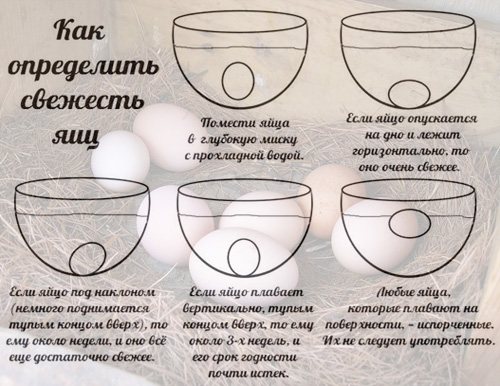
Eggs in dietary nutrition
Nutritionists often recommend eggs in diet menus. They are rightfully classified as low-calorie and healthy products. In addition to diets, they are also prescribed in the therapeutic nutrition menu. Thanks to their consumption, metabolic processes are normalized. Moreover, those who prefer to eat 2 boiled eggs for breakfast ensure that they feel full for a long time. This also reduces the daily diet by about 300 kilocalories.
Practical advice: For those who want to lose excess weight, nutritionists recommend eating at least 2-3 eggs per week. In low-carbohydrate nutrition programs, their number increases to 4-5.
When cooked, they can improve the body’s protective functions and also provide a sufficiently nutritious diet. They can be seen on the menu of many popular and effective diets, in particular the Kremlin, protein, Atkins and Protasov.
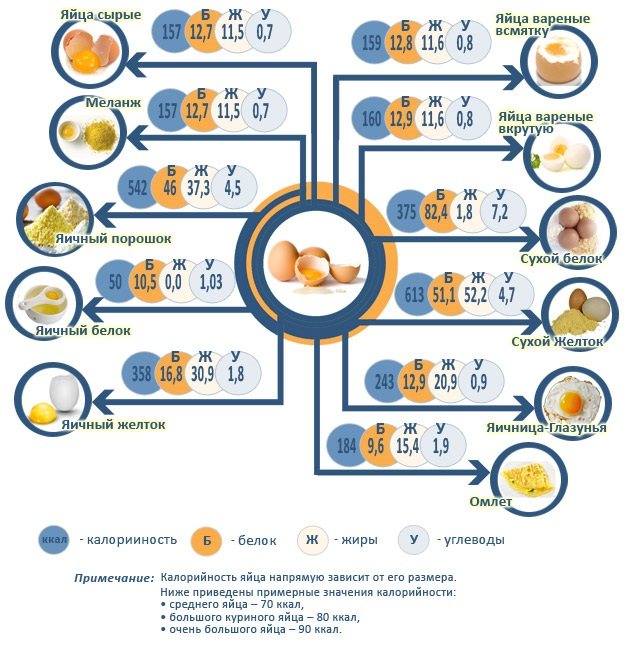
Acceptable consumption standards
To provide your body with enough nutrients, it is recommended to eat 1 piece. per day. However, this is only possible if the level of cholesterol in the blood is normal. If the indicators are elevated, the amount of product is reduced to 2-3 per week. Eggs can be introduced into the diet of babies from 7 months. At first, it is recommended to give only yolks. For children 2-3 years old, the norm is 2-3 yolks for 7 days. When creating your menu, you must also take into account the fact that eggs are contained in many products, in particular baked goods, mayonnaise, etc.
Egg diet for 7 days: menu
A diet based on the benefits of eggs is considered one of the most effective weight loss systems. The main ingredient is the egg. Calorie content 1 pc. (boiled egg) must be counted correctly.
The effectiveness of the diet is associated with its unique properties, because an egg can provide a person with a sufficient amount of essential substances, including vitamins.
Vegetables and fruits are allowed for consumption ; fermented milk foods are used to maintain intestinal microflora. The exception is those products that do not contribute to weight loss.
Prohibited:
- potato;
- grape;
- date fruit;
- figs;
- banana.
Due to the acidity of citrus juice, the volume of the stomach decreases.
When following the diet, you need to eat three meals a day and avoid additional snacks.
The advantage of this method is:
- lack of hunger;
- ability to provide dietary diversity;
- no need to take a complex of vitamins;
- there is a small probability of stress or depression due to restrictions.
Before you begin, you should assess all possible risks and your own capabilities in advance. This diet is not suitable for people with an allergic reaction to citrus fruits or problems with the functioning of the digestive system. The diet is contraindicated during pregnancy and lactation.
It is worth considering that if a person has previously had no allergic reactions to citrus fruits or eggs, then during a period of dietary restriction side effects may occur:
- allergy;
- dizziness;
- weakness.
Such symptoms are natural and usually go away when the body gets used to the unusual regime.
The list of certain products acceptable for consumption during the day is regulated.
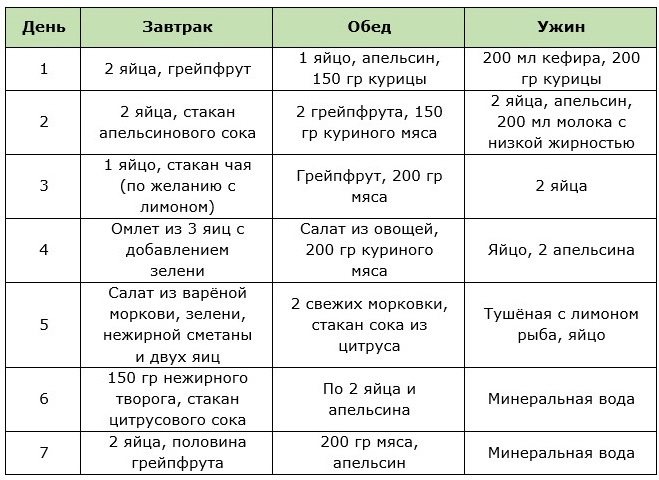
A weekly diet is more gentle, but the effect of a longer diet will be more significant. Restricting your diet in compliance with all the rules will allow you to get rid of 3 to 4 kg in one week.
When preparing, you must adhere to a number of requirements:
- the egg is not cooked until hard;
- oil in vegetable stew is strictly unacceptable; it is replaced with lemon juice;
- instead of orange you can take grapefruit;
- only lean meats are used;
- The skin is removed from the chicken.
Menu program for 7 days:
| In the morning | During the day | In the evening | |
| Mon. | orange, 2 eggs | 1 egg, 1 citrus, 150 g chicken | 1 cup low-fat kefir, 200 g chicken |
| Tue | 2 eggs, tea | 2 citrus, 150 g chicken | 2 eggs, 1 citrus, 1 glass of low-fat milk |
| Wed. | 1 egg, citrus, juice | 1 citrus, 200 g lean meat | 2 eggs |
| Thu | 3 egg omelet with herbs | 1 citrus, 200 g lean meat | 1 egg, 1 citrus |
| Fri. | boiled carrots, 2 eggs, low-fat sour cream, greens | 2 carrots, 1 tbsp. citrus. juice | stewed fish, 1 egg |
| Sat. | 150 g low-fat cottage cheese, 1 tbsp. citrus. juice | 2 eggs, 2 citrus | mineral water |
| Sun. | half a citrus, 2 eggs | 200 g lean meat, 1 citrus | mineral water |
By adhering to such a diet, there is no strong stress due to food restriction and the need to starve, since each meal is varied and sufficient to relieve hunger, and you can lose several kilos with it.
